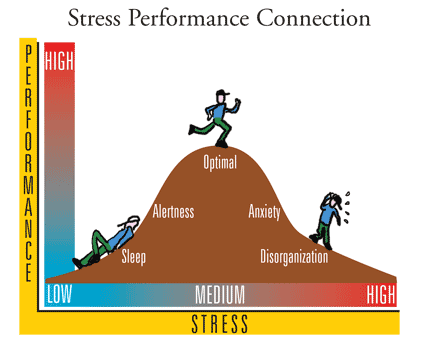It's a question I was asking myself every time I pulled into the local fuel station at off peak hours...because it seemed to me, that it took more time to tank up when there WASN'T a queue of cars ahead of me. Now this sounds like counterintuitive logic on the face of it - it should be faster when there's no queue, not slower, right?
But I noticed that during off peak hours, the attendants had usually sauntered off, away from the filling machines. They hung around somewhere in the vicinity, (seemingly ready for some action)...but they were not off the blocks as fast as they were during the morning and evening rush hours. Infact, getting their attention during off peak hours, sometimes took longer than the time to tank up!
I looked for similar 'symptoms' in other service establishments, and I was amazed at the number of places where one can see this phenomenon in action. From retail outlets to restaurants, from banks to airline counters.
Wondering whether I was seeing ghosts where their were none, I decided to investigate this with a bit of internet research....and stumbled upon the inverted U principle. While there's been a lot of discourse around high stress's correlation with low performance, it seems low stress can also lead to low performance. Corollary: a certain amount of "stress" is essential to draw the best out of people.
So here's what was happening at our fuel station....With a steady and continuous flow of cars in the morning and evening rush hours, it was all hands on deck - alert, attentive, focussed on clearing the rush, and shortening the queues with a military drill like efficiency. But the subsequent lull seems to dull their speed. Moral of the story - as long as the car queue is not extending all the way to the road outside and causing a jam, the petrol station will deliver faster service when you stop during the morning rush hour, than when you stop by when traffic is lean.
What does this mean for corporates?
When more resources are 'free', things should move faster, but they don't in the real world. Since we seem to do MORE (not less) when we are MORE busy, gentle pressure at the workplace is essential to get things moving. So don't complain next time your bosses give you tight deadlines - they are merely attempting to maximise your performance.
NOTE: The ‘Inverted-U’ idea has not been proved formally. Also different peoples definitions & evaluations of stress and performance would vary in different situations/ circumstances. If there were a mathematical study on this, the curve would probably not be as smooth...
But I noticed that during off peak hours, the attendants had usually sauntered off, away from the filling machines. They hung around somewhere in the vicinity, (seemingly ready for some action)...but they were not off the blocks as fast as they were during the morning and evening rush hours. Infact, getting their attention during off peak hours, sometimes took longer than the time to tank up!
I looked for similar 'symptoms' in other service establishments, and I was amazed at the number of places where one can see this phenomenon in action. From retail outlets to restaurants, from banks to airline counters.
Wondering whether I was seeing ghosts where their were none, I decided to investigate this with a bit of internet research....and stumbled upon the inverted U principle. While there's been a lot of discourse around high stress's correlation with low performance, it seems low stress can also lead to low performance. Corollary: a certain amount of "stress" is essential to draw the best out of people.
So here's what was happening at our fuel station....With a steady and continuous flow of cars in the morning and evening rush hours, it was all hands on deck - alert, attentive, focussed on clearing the rush, and shortening the queues with a military drill like efficiency. But the subsequent lull seems to dull their speed. Moral of the story - as long as the car queue is not extending all the way to the road outside and causing a jam, the petrol station will deliver faster service when you stop during the morning rush hour, than when you stop by when traffic is lean.
What does this mean for corporates?
When more resources are 'free', things should move faster, but they don't in the real world. Since we seem to do MORE (not less) when we are MORE busy, gentle pressure at the workplace is essential to get things moving. So don't complain next time your bosses give you tight deadlines - they are merely attempting to maximise your performance.
NOTE: The ‘Inverted-U’ idea has not been proved formally. Also different peoples definitions & evaluations of stress and performance would vary in different situations/ circumstances. If there were a mathematical study on this, the curve would probably not be as smooth...

No comments:
Post a Comment